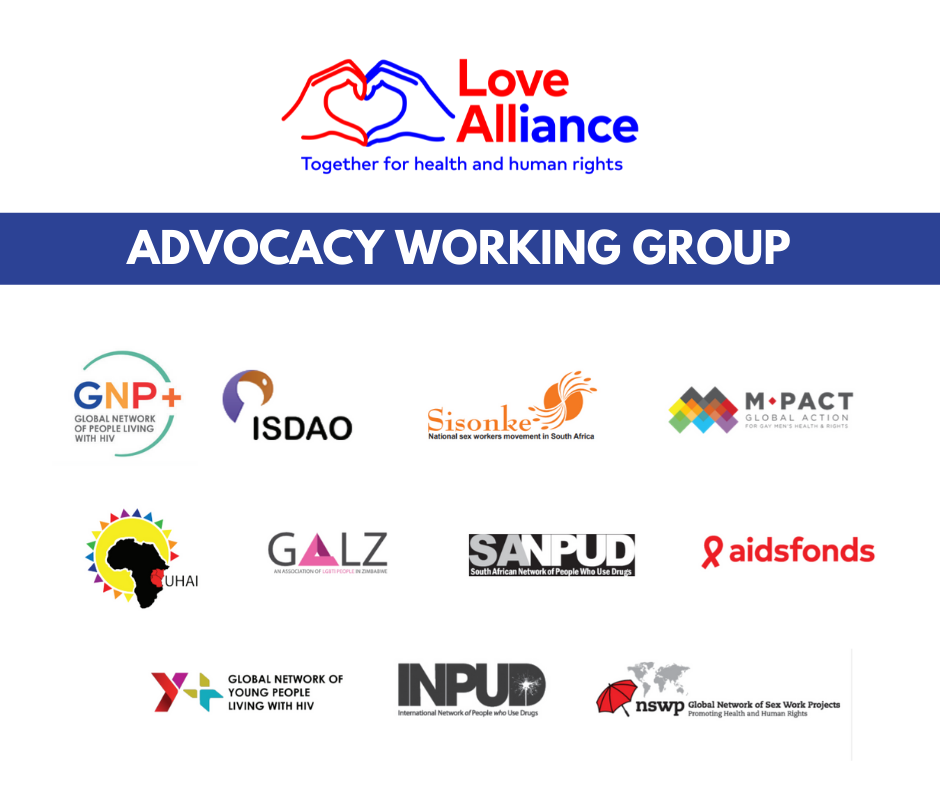Foreword from the Love Alliance
The Love Alliance is proud to give direction and support to the O’Neill Institute’s ongoing development of the HIV Language Compendium.
This Compendium’s first purpose is protecting and advancing commitments on rights- and evidence-based HIV-AIDS responses in the UN system. It does this by inventorying and substantiating internationally agreed language in UN declarations and other documents to support like-minded governments, advocates and other stakeholders to protect previously agreed progressive wording and commitments in new UN Resolutions and Political Declarations. In addition, it aims to further efforts to advance political commitments that protect the rights of people living with and affected by HIV and to establish the structure, systems and accountability mechanisms needed to uphold these.
Under the aegis of the Love Alliance, GNP+ and Aidsfonds have provided and will continue to provide strategic direction to the Compendium’s development. In reviewing this document, guiding its continued development and promoting its dissemination and use, GNP+ and Aidsfonds draw on their experience as co-chairs of the 2021 UN High Level on HIV/AIDS Multi Stakeholder Taskforce.
Policy and advocacy are key components of the Love Alliance’s work in improving and expanding access to sexual and reproductive health. We recognise the importance of language in international treaties, national laws, and regional policies concerning HIV-AIDS. When rights-affirming and inclusive, language can bolster the authority and impact of community-led organisations like ours, but it can also be weakened or removed to reverse this much-needed progress. Because of this, we see future areas for development of the Compendium in extending its coverage to regional commitments and tailoring it for impact at the national level.
We are committed to policy change that aligns with the needs and interests of key populations, but high-level precedents and evidence can be difficult and time-consuming to find and analyse, especially for advocates from underserved groups. To ensure the people most affected by HIV-related policy have due influence in its development and protection, they can draw from the Compendium to bolster their invaluable input—including their lived experience and familiarity with local norms and laws—with internationally persuasive and authoritative language.
With this collection of precedent, evidence, and accompanying analysis we will draw the line on what is needed within the rights-based global HIV response. As this Compendium is updated, we look forward to drawing and redrawing this line as our international commitments progress to a more complete recognition of what is needed to respect, protect and provide for the right to the highest attainable standard of sexual and reproductive health.
